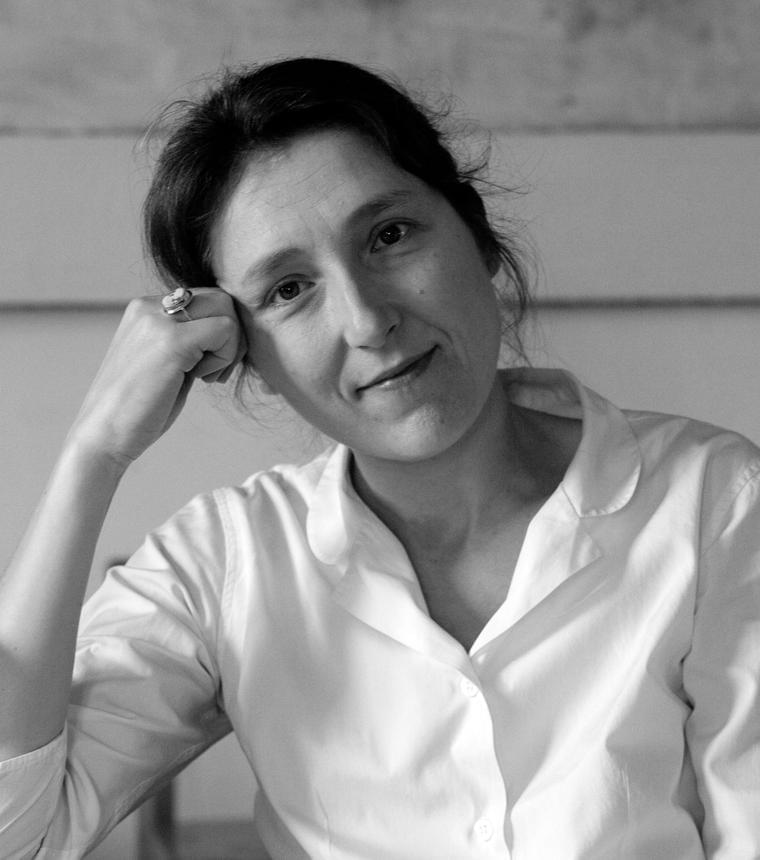Translated by Penny Hueston
When her mother offers Rose a Mediterranean cruise with her two children, she jumps at the chance to get away from her husband who drinks too much, and the renovations of their holiday house in the south. But one night the cruise ship comes upon a shipwrecked boat full of refugees, who are taken aboard. Without telling her teenage son, Rose gives his mobile phone to a young Nigerian refugee. Does she want to be some kind of a hero, ease her conscience? Now what is she in for? The secret phone connection takes Rose and her family on a journey of discovery.
With her trademark wit and acid intelligence, Marie Darrieussecq, like Rachel Cusk or Jenny Offill, shines a light on issues of individual responsibility in our complex world.
INTERVIEWS and REVIEWS
Booktopia: Good Reading magazine
Spectator
Sydney Morning Herald
andCrossed Lines
‘What a ride! Marie Darrieussecq courses through dark places with such buoyant energy that you emerge exhilarated.’
‘Darrieussecq has a force of clarity, an ability to take herself seriously without the need for self-deprecation. She is always original, always thrilling.’
‘There are few writers who may have changed my perception of the world, but Darrieussecq is one of them.’
‘A moving, humane, often funny novel about instances of heroism that can save a life…Darrieuessecq champions an ordinary, powerless individual, who proves herself nonetheless capable, now and again, of doing good things that, without saving the world, can reduce the suffering of another individual. What would we have done if we were Rose? Or rather: what are we doing?’
‘No other author writes about being a mother as intensely and as precisely as Marie Darrieussecq…This is the story of a woman asking herself how she can be in some way honourable in the face of the world’s absurdity…Written with compassion and humour, and with no moral other than that of giving meaning to one’s existence.’
‘There’s nothing particularly heroic about Rose. She won’t save the world. But on this night of chaos and confusion on board a cruise ship, she has the instinct to help a young Nigerian refugee. She does it without a second thought…Crossed Lines is a bet with humanity, proof of the need for active resistance. “We can be heroes, just for one day.”’
‘Rather than moralising, Crossed Lines reflects the confusion and helplessness of our society in the face of refugees on our doorstep. Darrieussecq admits to feeling the same degree of goodwill and awkwardness as her protagonist, without any solution to offer. “That confusion and distress is everywhere in my writing.”.’
‘Crossed Lines is a wonderful novel, one of those books that never leaves you, which you remember with absolute clarity. It is a perfect work of fiction, giving you the happy sensation of recognition.’
‘Rose is an ordinary woman, full of life, positive and endearing, who ends up saving her marriage because she knows how to look beyond her own perspective. Crossed Lines rings true from the first page to the last and leaves a lasting impression.’
‘Rose is a Madame Everywoman, an appealing character, a woman of her time, a mother through and through, funny and full of life, just like the writing in this novel, a wonderfully humorous, spirited and thoughtful book.’
‘In stylistically perfect realism imbued with touches of irony and philosophical depth, Crossed Lines manages brilliantly to steer a course between the self and the world.’
‘Working with stereotypes and clichés has always been a pleasure for Marie Darrieussecq. In Crossed Lines, Rose is a loving wife and mother, worried about the viability of her marriage. She’s also the archetypal Parisian thinking of moving to the country. And she’s a worried, helpless spectator of those who are less fortunate than her. In this novel we see a woman transform her everyday life in order to rescue a child who is not her own.’
‘A wonderfully astute novel that succeeds in bringing humour and apparent simplicity to the serious themes it deals with—all with an ironic gaze that is never cynical.’
‘This novel is not a bleak, moralising tale. It’s mischievous, witty, not the slightest bit tedious. “The truth is,” says Marie Darrieussecq, “I met quite a few refugees who were in good spirits.” At the risk of shocking those for whom refugeedom is exposure to extortion, rape, torture or death, the author has no hesitation in describing “young men heading off on an adventure”. No, Marie Darrieusseq does not dwell in the domain of the politically correct: “I write to disturb readers.”
‘Darrieussecq’s descriptions are precise and startling and her observations penetrating.’
‘[Marie Darrieussecq] has a genius for capturing the melancholy and absurdity of the world through penetrating social observation and sardonic wit—a quality sharply conveyed in this engaging translation.’
‘[E]xplores a complicated situation with sensitivity.’












